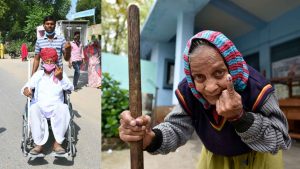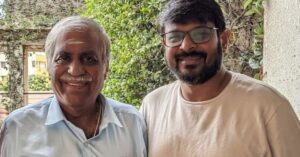US Coach Moved to Jharkhand, Uses Football to Help Girls Stay in School & Study Abroad
Franz Gastler founded Yuwa, an organisation that uses sports to fuel social development in Jharkhand. He shares how this has helped girls stay in school, study abroad, build careers and more.
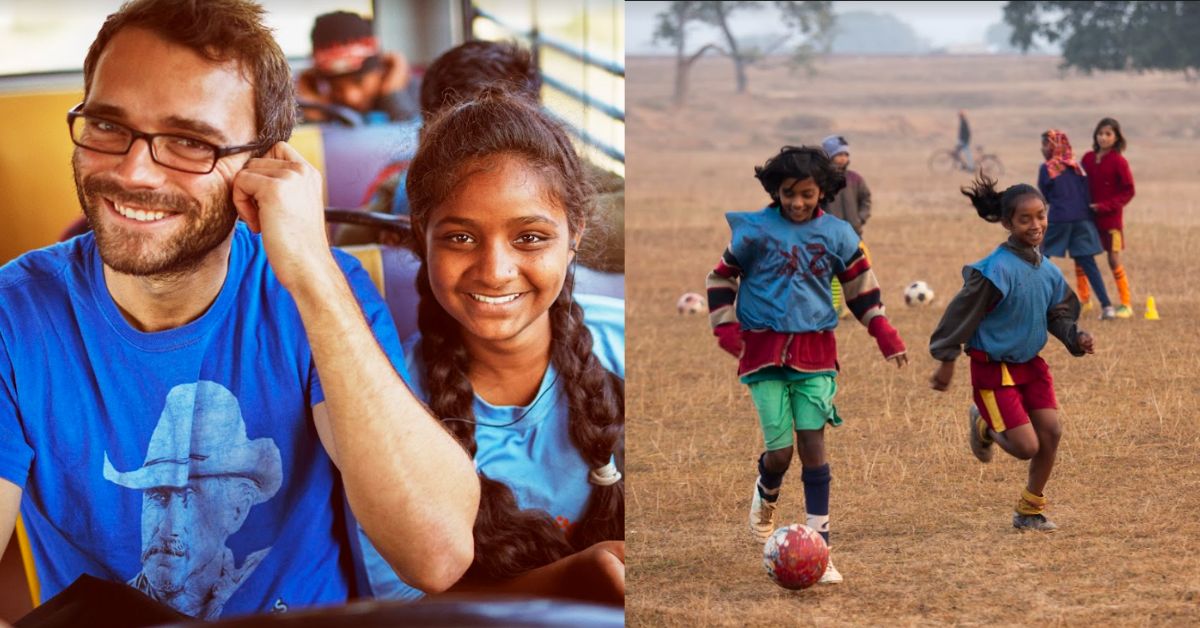
#MakingSportWork: We celebrate the potential of sport to build a #BetterIndia with opinion pieces, stories and profiles of how sport can improve the lives of every Indian. Read more from this exclusive series by The Better India and Sports and Society Accelerator here.
When Seema Kumari received the news that she had been accepted into Harvard University last year, she knew it was nothing short of revolutionary.
Growing up in a farming family in the village of Dahu, Jharkhand, she was aware that life could have turned out very differently. The state has the highest school dropout rate in the country, and most girls from homes like hers are unable to finish their education in order to contribute to their family’s income.
When her Harvard acceptance came, among the first people that Seema called to give the good news were Franz and Rose Gastler, the founders of Yuwa — the school she attended and the biggest reason why she had been given this chance.
For the 19-year-old, the duo are her “second parents”. “If I need anything, I go to them. My parents can’t understand what I am dealing with. They know where I come from, and they know who I am,” she says.
With a vision for a brighter future
Franz Gastler founded Yuwa, an organisation that uses sports to fuel social development, in Jharkhand in 2009. He had moved from the US to India the year before to work for an NGO, but decided he wanted to work directly with the local community in Rukka village, Ormanjhi.
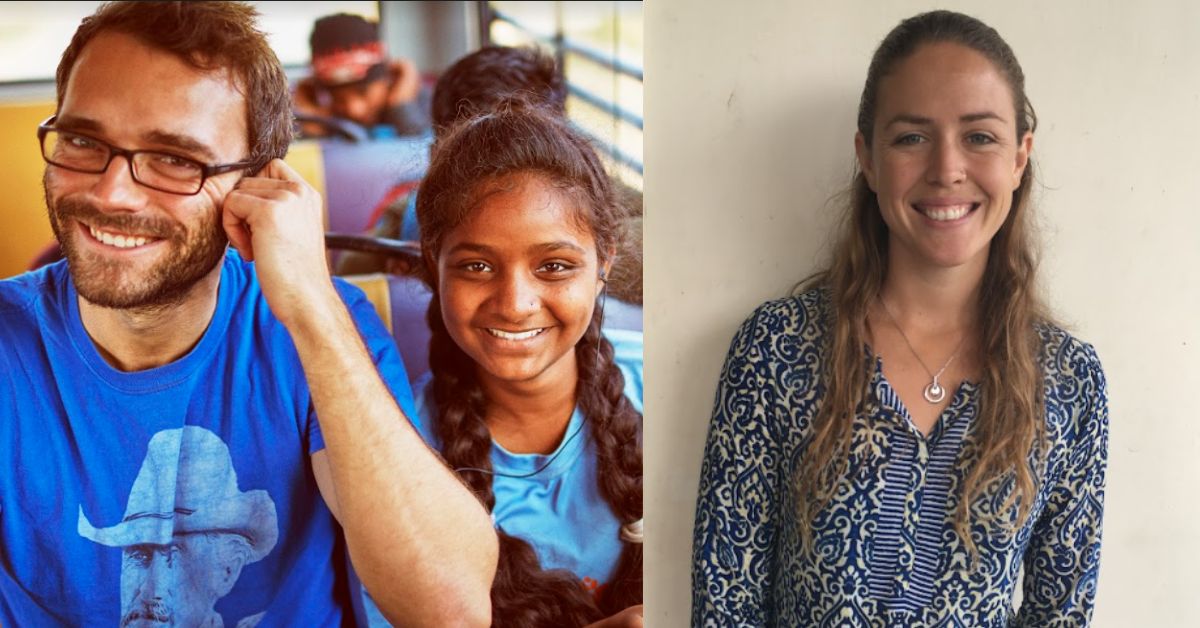
Yuwa began by funding academic scholarships to a private school and provided tuitions in English and Maths. Classes in the morning started at 5 am and were often taught by candlelight since electricity was in short supply.
The idea to use sports to initiate change, however, came during a conversation with a group of girls he was working with.
When a 12-year-old named Suman casually said she would like to play football, Franz realised he had never seen any of the girls playing any sport. He decided a football programme was worth trying, even though he had never played it himself.
“Sports is a really good way to increase school attendance,” explains the 41-year-old. “Before football, girls were individuals. Now they are a team. If one girl drops out of school, her teammates work together to bring her back.”
That’s why a key condition for his football programme was that the girls had to stay in school.
Franz wanted to create a safe and encouraging space for the girls, so he focused on positive coaching and having fun. But over the years, the girls told him they wanted harder practices. “I wasn’t surprised that they wanted to play football, but I was surprised that they took it so seriously,” he recalls.
The football programme quickly took off and became far more popular than Franz had ever expected. He even took a few teams to compete in Spain and the United States. In 2019, Yuwa received the Laureus Sport for Good award for its football programme. The award honours those who have demonstrated “tremendous contribution to sport or to society through sport”.
Today, Yuwa has 29 teams with around 600 players, who play six days a week. All the girls come from about 15 to 20 villages in Ormanjhi block. The BookASmile Yuwa football programme also has about 50 female coaches, all of whom have come through the football programme. The organisation recently added an Ultimate Frisbee programme and in September 2022, nine girls from the organisation participated in an Ultimate Frisbee Tournament in New Delhi.
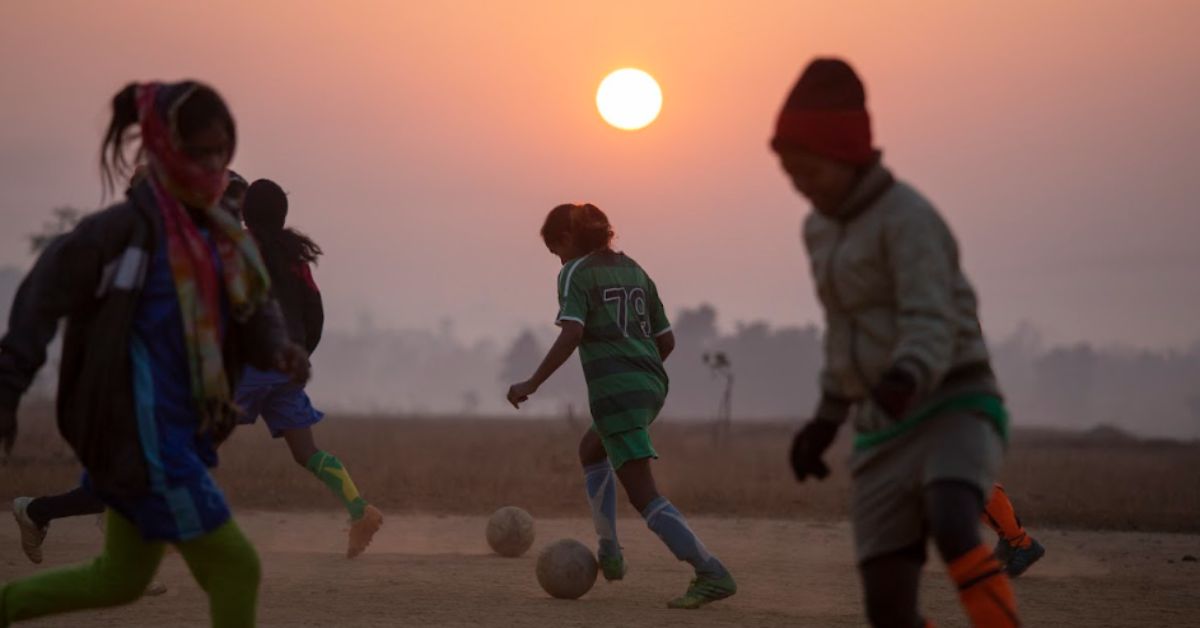
Challenging archaic notions
Seema had joined the football programme in 2012 at the age of nine. Unlike a lot of other girls, her parents had not objected.
“Neither my parents nor my [elder] brother ever stopped me from doing something. It was my decision and they respected that,” she says.
One of the more exciting aspects of the programme for Seema was getting to meet and talk to volunteers from different countries, which opened her eyes to the wider world. “I thought if they can come here, why can’t I go there and see what it looks like?”
The year that Seema joined Yuwa was the same year Franz met Rose (then Rose Thompson), in Mumbai. Rose was in India on a fellowship focused on the impact of sports on girls’ development. Franz invited her to Jharkhand and Rose spent a couple of months there. She returned to Jharkhand in 2013 and joined Yuwa full-time in September. The two would later get married.
Rose led the before-and-after school education programme, but over time, it became evident that they needed to do more. “After doing this for a year and a half, I started to feel like we were not meeting our goal of putting the girls’ futures in their own hands,” she explains. “Instead of being 16-year-old brides, they were just becoming 18-year-old brides.”
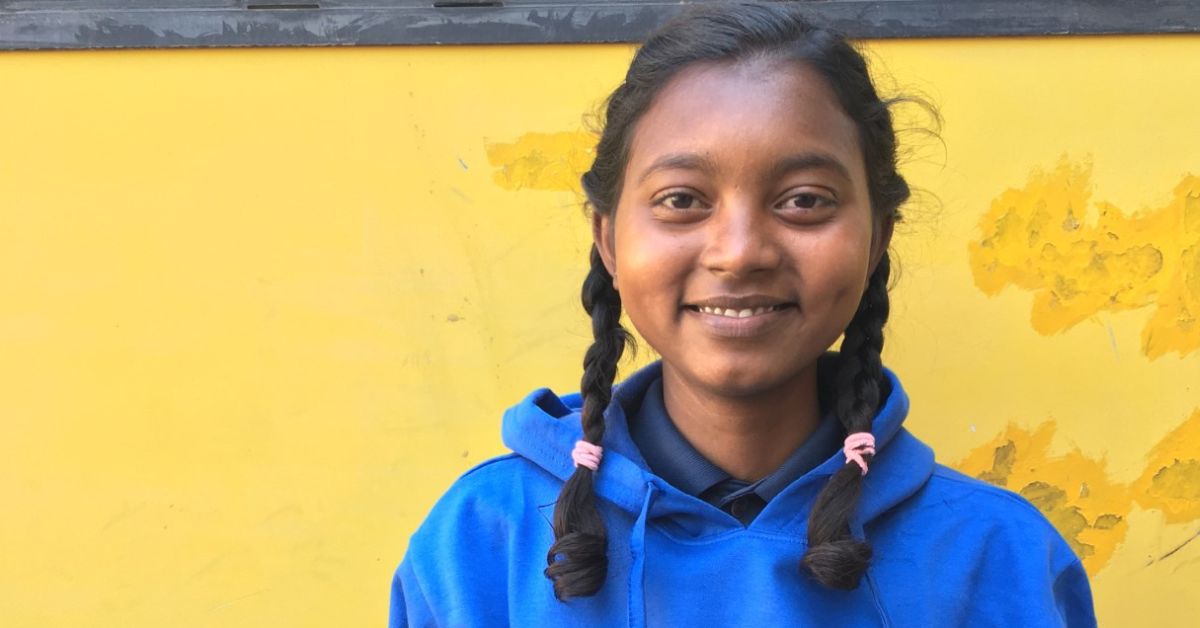
Franz agrees and notes, “The parents were happy their girls were enrolled, but they saw it as a route to a better marriage prospect for their daughters, not as something that could help them build their own lives.”
The pair realised the only way they could guarantee the quality of education they aspired to was to start their own school.
However, Franz wasn’t convinced it was the right move. “I felt like there were too many roadblocks and we would get stuck,” he says.
But they found an able ally in IAS officer Manish Ranjan — the then director of secondary education, Government of Jharkhand — who helped them through the process. “He deserves a lot of credit,” Franz says.
Meanwhile, Rose diligently recruited teachers, sifting through hundreds of applications to pick the ones she felt best fit their mission. In April 2015, Yuwa opened the school with 45 students from classes 3 to 8.
From its inception, the Yuwa school wanted to create an environment that would foster critical thinking and enable the girls to feel empowered as members of their communities.
“A lot of people here still think women should not be educated …We want [the children] to be prepared to challenge those notions and to have the confidence to do that in a way that is empathetic and unwavering,” Rose says.
There’s no admission test for the school. Admission is granted on the basis of financial need and a commitment to the football programme.
In an area where family support for girls is mostly lacking, the football teams double as a social support network. “It is really important to have a larger community that supports and defends their choices and connects them with older girls who have taken this path,” Rose says. “When you see other examples, it is very powerful. They know it can be done.”
Where girls find the right to dream
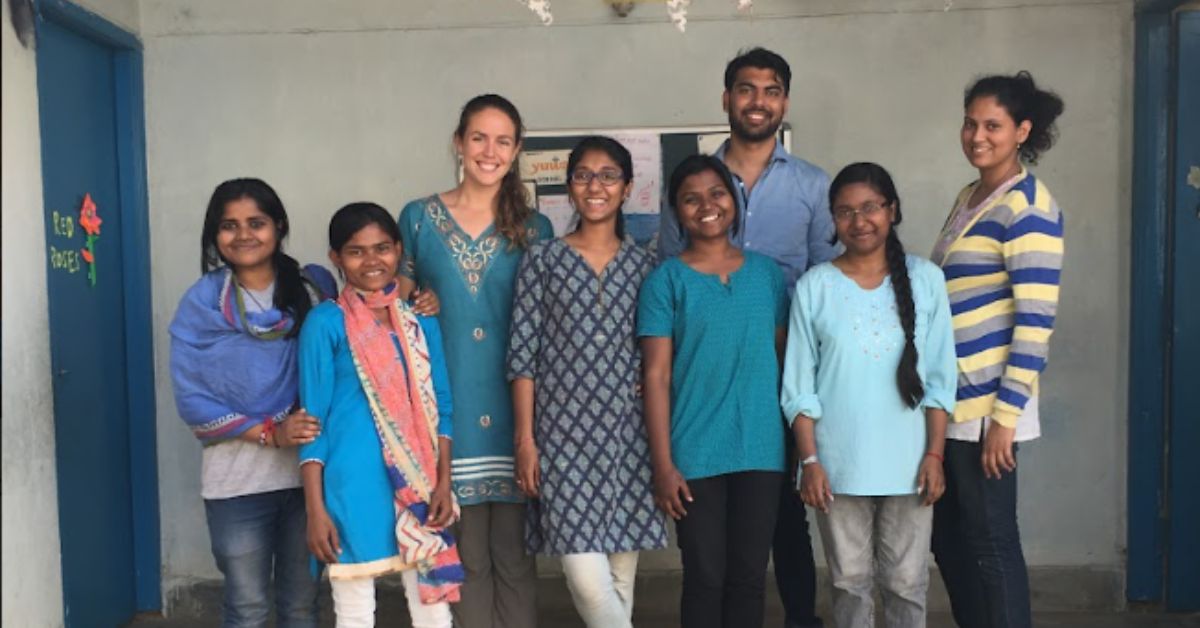
Since 2015, the football programme has been running in collaboration with BookASmile, the charity initiative of BookMyShow.
The programme also helps develop the girls’ personalities. Seema says it gave her more confidence and made her a better leader and communicator. “Now that I have seen it, I feel like I am one of those people who believes in [the power of] sports,” she says.
During the initial phase of the pandemic, Franz and Rose ran the school remotely, which was challenging because only a few girls had access to the internet. But the school thrived despite these hurdles. “The key was how good our staff is and how dedicated the kids are to keeping it going,” Franz says.
The pandemic also hit their fundraising hard, but Yuwa was rescued by Alka Tiwari, a C-suite executive in Mumbai. “She and her IIM women’s alumni group kept our organisation afloat for a year and a half,” Franz says.
The first class of nine students graduated in 2020, with eight of the nine getting full scholarships to universities in Spain, India, and Bangladesh. Yuwa also offers the opportunity of a high school year abroad in the US on a programme sponsored by the US Government. This year, three students from Yuwa were selected.
In 2022, Rose handed over the reins as principal to Sheena Chacko, who had previously worked at the International Labour Organisation in New Delhi. When Chacko’s husband was posted to Ranchi, she, too, had to look for a job, and came across the opening for principal on LinkedIn. “Frankly speaking, I was moved, and wanted to be part of Yuwa,” says Chacko, who took over in July this year.
Though she has only been in the position a few months, Chacko has been impressed by the effort and determination shown by the students.
She says a typical day for the girls involves waking up around 4 am, going for practice, then going back home to do household chores. School hours are 9.00 am to 3.00 pm, after which some girls have football practice again. Then there are more household chores or work to be done in fields.
The girls somehow also find time to study and take part in various programmes run by the school such as Kick-off Solutions and Goals for Girls.
“Students of Yuwa are very inspiring and when you look at their day-to-day schedule, it motivates you to work harder in life,” Chacko says. “It’s a totally different and satisfying feeling working here after having a career of 14-plus years across the corporate world, diplomatic community, UN…It’s adding meaning to what I am doing.”
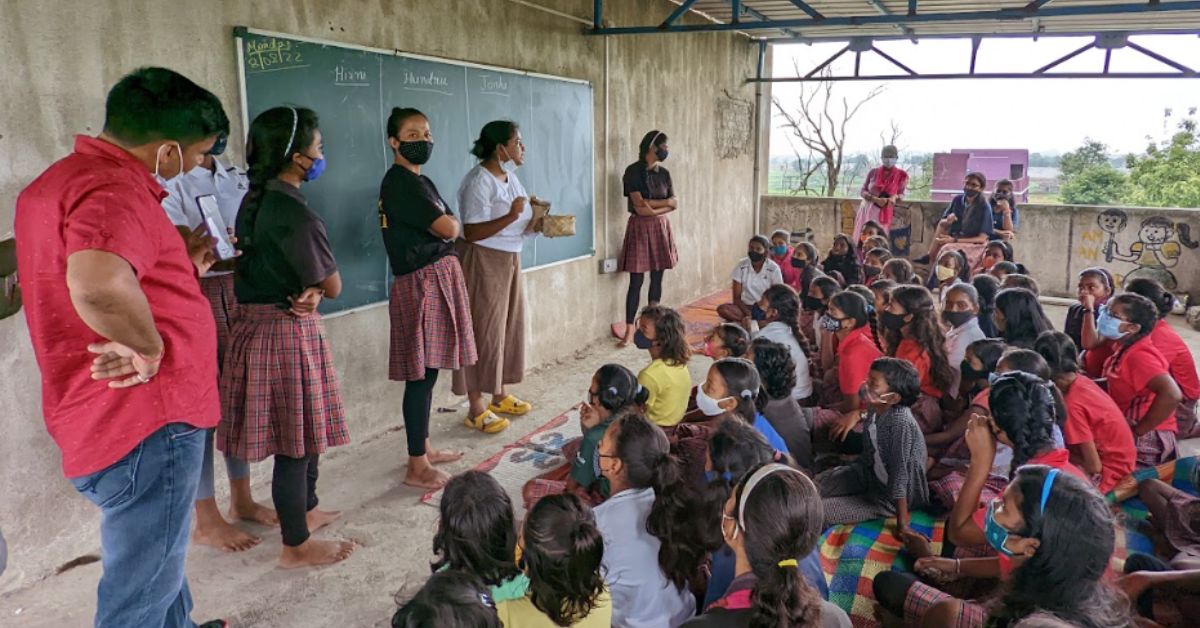
Among the challenges she faces is the continuing opposition to what Yuwa is doing from some within the community, who believe that girls do not need an education.
This notion undoubtedly affects the girls who are part of Yuwa’s programmes as well. Seema, who is now in her second year of Harvard, says she has felt afraid at times, like when she went to visit her parents during her summer vacation earlier this year. “There are people who believe that what I am doing is wrong,” she says. “Jealousy is another issue you have to go through.”
Seema plans to major in Economics, and despite her fears, hopes to one day return to Jharkhand to help improve the lives of others in the area.
According to Chacko, the girls also have to deal with alcoholism and drug abuse within their families. That’s why Yuwa also has a team of counsellors to support them. Seema mentions Laura, one of the counsellors, as someone who gave her good advice.
‘The programme taught me that girls can think for themselves.’
Yuwa will graduate its fourth batch of students next year. Among them will be Riya Kumari, a Class 12 student who comes from a village called Singiri.
Riya joined Yuwa when she was 10. She had noticed some girls in her village playing football and thought it would be a good way to make friends. But when she asked her father, who sells clothes at the local market, if she could join, he said no because “football is meant for boys, not girls”.
Riya decided to go without telling her family, but her neighbours would see her leaving the house wearing shorts and eventually told her parents. “They didn’t like that and they provoked my parents to stop me from playing,” Riya says. “Starting was really hard … it took one or two months for [my parents] to accept it.”
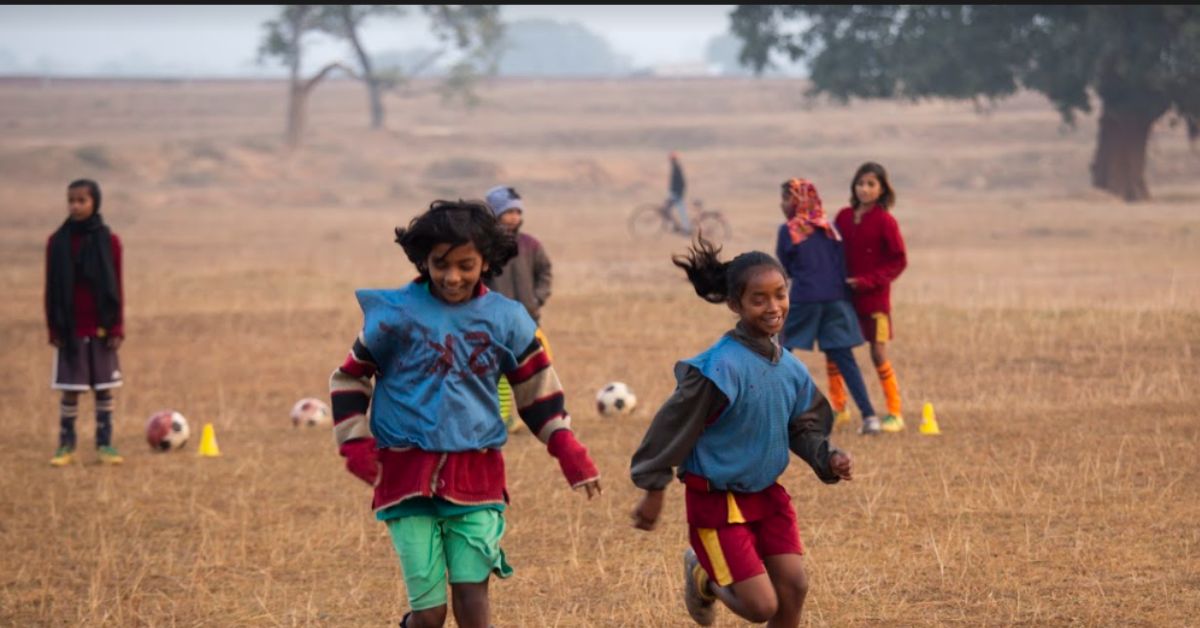
Today, Riya coaches the younger girls and has set up two 16-member teams in her village. “Through football, I am giving them awareness,” she says. “Some of them are not even aware of what periods are and they are asking me questions.” She also gets paid to coach and uses this money for her school fees and to support her family.
She’s currently in the process of applying to colleges in the US, the UK and India. Like Seema, she plans to study economics in college, but she is also interested in astrobiology.
“My thinking has changed. Before joining Yuwa, I had no clear idea about my future. In my community, it is very common for a girl to get married after Class 10 or after she starts menstruating. I also thought the same would happen to me. I got to know after joining [Yuwa] that girls can think for themselves.”
Edited by Divya Sethu
This story made me
- 97
- 121
- 89
- 167
Tell Us More
We bring stories straight from the heart of India, to inspire millions and create a wave of impact. Our positive movement is growing bigger everyday, and we would love for you to join it.
Please contribute whatever you can, every little penny helps our team in bringing you more stories that support dreams and spread hope.






